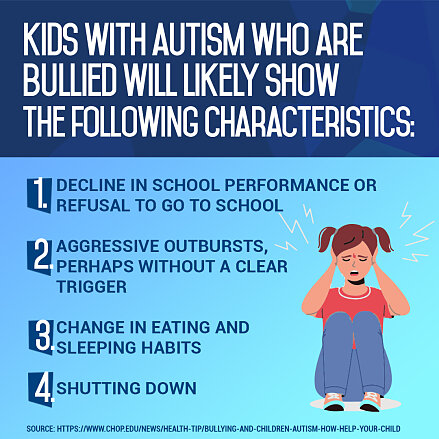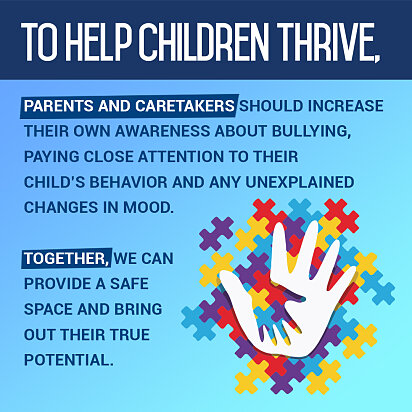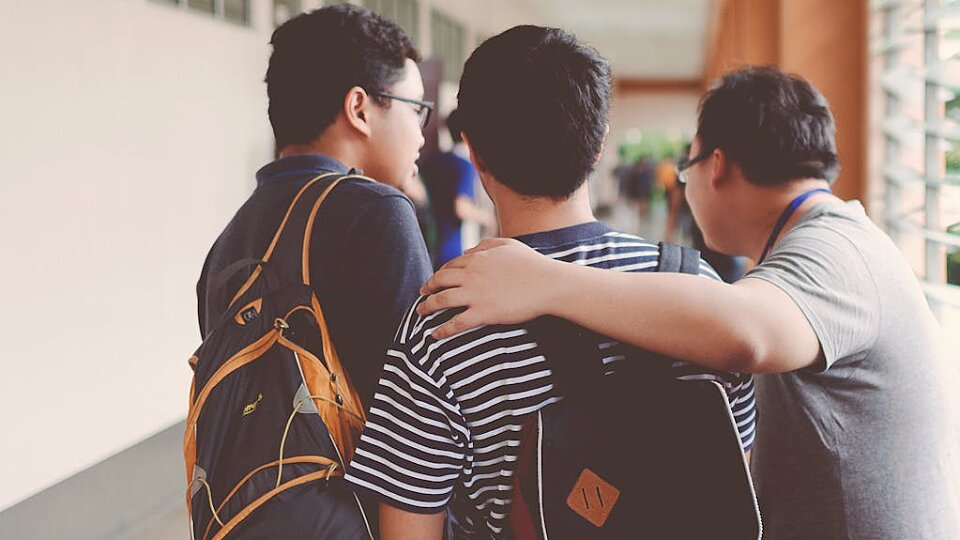How you can help prevent bullying
October was first declared as National Bullying Prevention Month in 2006. This month provides an opportunity to educate and provide awareness of the devastating effects bullying has on children and families. Below is a blog written by Colby Holman, high school senior and volunteer with Buckner Shoes for Orphan Souls®. After graduation, he plans to serve his country in the United States Navy.
I’m 17 years old, but I was diagnosed with autism when I was only 3. Of course, I didn’t know I had autism. I didn’t even know what autism was. What I did know was that I didn’t like loud noises, or crowds or people looking at me.
Sometimes I would have a meltdown at a noisy restaurant or at daycare and we would have to leave, or the school would call my parents to pick me up. The worst times were at birthday parties. I loved birthday parties, and like any little kid, I couldn’t wait to eat cake and see my friends. Yet, I would end up hiding under a table, crying until my mom took me home. I didn’t know there would be so many strangers in the room. They scared me.
When you’re a little kid and you have autism, everything scares you.
My parents put me in special classes and therapy. They wanted to prepare me for school as best they could. However, the world is just looking for reasons to bully a kid with autism and it doesn’t take much to get the bullies started.
 My kindergarten teacher didn’t like me. In fairness, looking back, I was rough to deal with. I spent most of the day crying under my desk. I didn’t want to participate or answer questions or really do much of anything.
My kindergarten teacher didn’t like me. In fairness, looking back, I was rough to deal with. I spent most of the day crying under my desk. I didn’t want to participate or answer questions or really do much of anything.
There were a lot of “time-outs” in my future.
Teachers talk. And after a couple years, I guess I started to get a reputation as a problem kid or “bad” kid. By third grade, teachers openly showed they didn’t like me by literally telling me they didn’t like me. You don’t have to be a very perceptive 8-year-old to understand that when a teacher says, “I can’t stand looking at you," she doesn’t like you.
You might be thinking, “There must have been a reason for the reputation," right?
I was loud. I can’t explain it, but when you have autism, you hate loud noises, yet at the same time, you tend to be the loudest kid in the room. Sometimes the class would start acting up, getting noisy and I would cover my ears and shout, “Stop talking so loud!” or just, “Shut up!” way louder than the rest of the kids.
This would cause nearby teachers to pop over and see if everything was all right, which would embarrass my teacher who was trying to keep everyone under control. So now, because I was the loudest for one second, I became the sole problem and not the other eight kids who were acting up to begin with.
I was blind to social cues. I don’t understand humans very well, and I don’t always pick up on facial expressions or changes in tone.
If someone says they’re fine, they’re fine. If someone shoves me out of their way as they walk by, I must have been in their way. I used to like to hug my friends and when you’re 5, that’s really cute, but when you’re 10 and you try hug another boy, they shove you to the ground. I didn’t understand that.
Teasing turned to fighting and by the fifth grade, I was defending myself against three or four bullies at a time. They would slam me into lockers, knock me down during recess or play pranks on me like turning off the restroom lights while I was taking a bathroom break.
My parents were always meeting with the principal and the excuses were always against me. If the kids beat on me, it was my fault because I’m an irritating kid and I must have provoked them to violence. If I had just left them alone, they wouldn’t have attacked me.
But when I fought back, suddenly there was never an excuse for violence and it’s never okay to put your hands on someone.
I couldn’t win.
The open dislike from some of my teachers and constant fighting from other kids finally ended when my parents convinced the principal to transfer me to another elementary school. And the other school was great. The teachers were really helpful, and everyone was very nice. I’m now a senior, about to graduate, and I haven't had any issues related to my autism since.
 So, what’s the takeaway? Why am I sharing my story?
So, what’s the takeaway? Why am I sharing my story?
If you’re reading this, there’s a good chance you have a kid in your life who is somewhere on the spectrum. Maybe they talk too much. Maybe they don’t talk at all. They might have meltdowns. Actually, they almost always have meltdowns.
Either way, it’s important to know these kids don’t choose how they feel. We don’t choose how our brains work, and we certainly can’t choose how other people see us.
We want to be good kids, and we don’t want to get into trouble.
But you have to fight for us. Many teachers and principals know very little about autism and the same goes for Sunday school teachers or coaches. Please, don’t rely on strangers to understand us. We’re just kids, but you’re grown-ups.
You have to know about autism, and you have to stick up for us.




Add a Comment